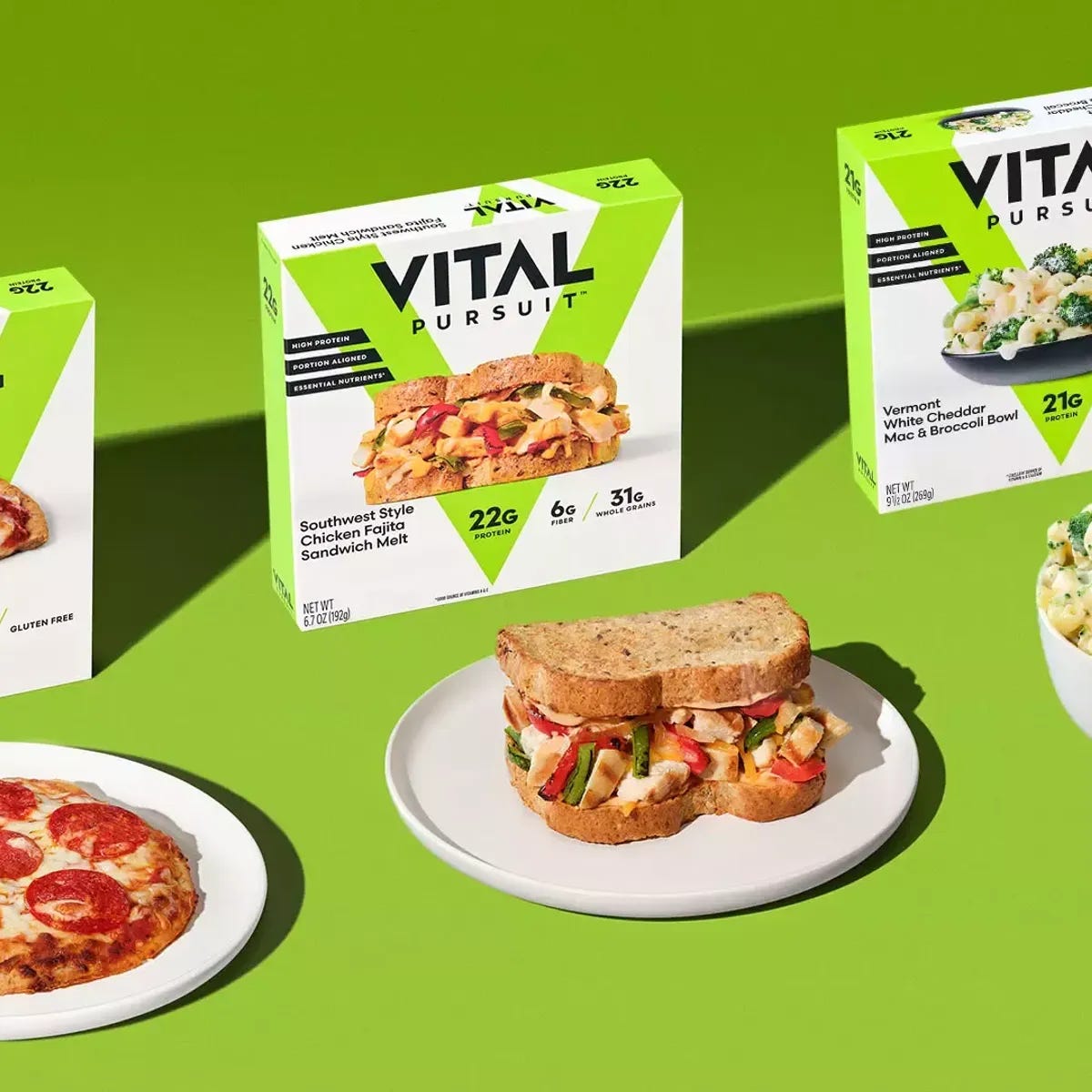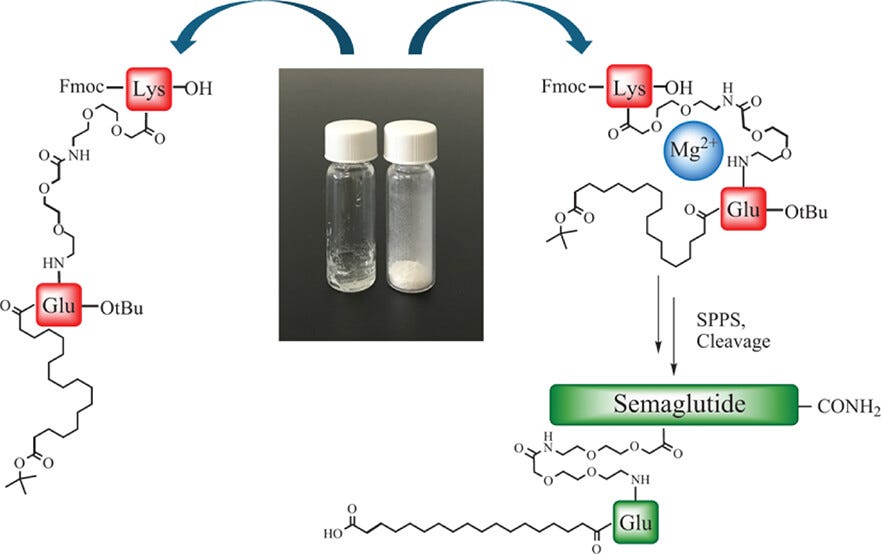The Gut Punch Weekly #10
The GLP-1 affordability crisis is here, Eli Lilly plans to invest $27B in US GLP-1 manufacturing, AbbVie enters the weight loss arena with $350M deal, and more!
The GLP-1 Affordability Crisis Is Here
The Food and Drug Administration’s February 2025 declaration that Novo Nordisk’s Ozempic and Wegovy are no longer in shortage has set off alarm bells for millions of Americans who relied on cheaper, compounded versions of these life-changing medications.
This announcement – coming on the heels of a similar ruling in January for Eli Lilly’s tirzepatide (Mounjaro/Zepbound) – effectively ends the regulatory leeway that allowed compounding pharmacies to produce lower-cost semaglutide or tirzepatide. Now, patients who had been paying a fraction of the official price must grapple with $1,000+ monthly costs or risk discontinuing therapy altogether.
Given this shock to the system, it's worth reexamining a few simple and fundamental questions: why are brand-name GLP-1 drugs so expensive? Why are these astronomical prices a uniquely American phenomenon? And how can we break the cycle and ensure afforable, ready access for the patients who most need these medications?
The FDA just ended access to cheaper GLP-1 alternatives. Why are the brand-name drugs so expensive?
Read more in The GLP-1 Affordability Crisis Is Here.
Top Stories
1) Eli Lilly Plans $27 Billion US Manufacturing Expansion
Eli Lilly plans to invest $27 billion in four new US manufacturing plants to produce active pharmaceutical ingredients and injectable products, potentially creating 13,000 jobs in manufacturing and construction.
The investment comes amid tariff threats from President Trump against pharma companies who manufacture drugs abroad.
The company's decision is partly motivated by supply chain resilience, pandemic-related vulnerabilities, and the potential need to reshore critical drug manufacturing capabilities.
The new manufacturing facilities, expected to be operational within five years, will support production of emerging drugs in weight loss, cancer, immunology, and neuroscience sectors and complement Lilly's existing $50 billion manufacturing commitment.
(CNN)
2) AbbVie Enters Obesity Market with $350M Drug Deal
AbbVie entered the obesity drug market through a $350 million upfront licensing deal with Danish biotech Gubra, with potential additional milestone payments reaching $1.9 billion for an experimental amylin analog drug.
The drug, GUB014295, showed promising early results with trial participants losing an average of 3% body weight at the highest dose.
The obesity drug market is projected to exceed $100 billion annually by the 2030s, attracting significant pharmaceutical interest despite current market leaders Novo Nordisk and Eli Lilly dominating the field.
The new drug aims to address existing GLP-1 drug limitations like side effects and high discontinuation rates.
Gubra's experimental drug is designed to be more stable than existing amylin-targeting therapies, potentially avoiding common chemical reactions that can reduce drug potency and increase side effect risks.
3) Eli Lilly Reduces Zepbound Vial Prices for Consumers
Eli Lilly has reduced the cost of its Zepbound single-dose vials, offering lower-priced options for patients paying out of pocket, including those on Medicare or without insurance coverage.
The company now provides vials at prices ranging from $349 to $699, depending on dosage and timing of prescription.
The pricing strategy targets patients who previously used compounded tirzepatide, which was often significantly cheaper than brand-name alternatives.
GLP-1 Industry Intel
Ozempic CEO Becomes Denmark's Diplomatic Troubleshooter: Lars Fruergaard Jørgensen, CEO of the economically influential Ozempic-maker Novo Nordisk, has become an unexpected diplomatic advisor to Denmark's government amid tensions with the United States over Greenland.
Eli Lilly Oscars Ad Targets Risky Unregulated Drug Alternatives: During the 2025 Academy Awards, Lilly aired a commercial warning consumers about the potential risks of using counterfeit or compounded medications not subject to rigorous regulatory standards.
Food & Wellness Industry Intel
Supergut Secures Major Investment, Replaces CEO: Supergut, a gut health brand targeting the GLP-1 nutrition market, secured significant growth equity investment and hired former Vital Proteins CEO Tracey Warner Halama to lead the company's expansion.
Danone's High-Protein and Health Strategy Drives Strong Financial Results: Danone achieved strong financial results in 2024, driven by strategic focus on high-protein products, gut health innovations, and science-backed claims related to diabetes and weight management.
GLP-1 Drugs and Tariffs Shake Sugar Industry: Speakers at the International Sweetener Colloquium highlighted growing concerns about GLP-1 drugs' potential impact on sugar consumption and potential trade tariffs affecting the sweetener market.
GLP-1 Drugs Reshape Food Retail Strategies: Food retailers like Hy-Vee and Lowes Foods are responding to GLP-1 medication trends by offering more nutrient-dense, high-protein meal solutions and creating clean-label products that cater to consumers' evolving nutritional preferences.
Snack Makers Unfazed by Weight Loss Drug Impact: Food industry executives believe GLP-1 drugs will have minimal long-term impact on their business, with many companies proactively developing product lines and marketing approaches to cater to users of these weight loss medications.
Nexira Launches Natural Alternatives to GLP-1 Medications: Nexira has developed a comprehensive range of natural supplements targeting weight management and side effects of GLP-1 medications, including appetite control products like Carolean and VinOgrape and remedies for medication-related gut health and nutritional challenges.
Wellgistics Partners to Market GLP-1 Medical Foods: Wellgistics Health expanded its partnership with Tollo Health to distribute medical food products targeting side effects of GLP-1 treatments and Long COVID symptoms.
Frontline Focus
Health Leaders Must Address GLP-1 Medication Affordability: Health-care leaders are being called to address the affordability crisis of GLP-1 medications by implementing collaborative solutions across pharmaceutical manufacturers, employers, health plans, and government agencies.
Efficacy and Access Top Priorities for Weight Loss Drugs: As biopharma invests heavily in weight loss drugs, physicians are seeking improved GLP-1 medications with better safety profiles, fewer side effects, and more affordable treatment options.
Weight Loss Drugs' Long-Term Effects on Kids Uncertain: A growing number of teens are using GLP-1 drugs like Wegovy for weight loss, but significant long-term concerns remain about potential impacts on brain development, hormonal changes, and psychological health.
GLP-1 Clinical Insights
GLP-1 Drugs Not Linked to Increased Suicide Risk: A comprehensive study revealed that GLP-1 receptor agonists were not associated with higher rates of suicidal behaviors when compared to alternative diabetes medications.
GLP-1 Agonists Show Promise for Prostate Cancer: Researchers investigated the intricate relationships between prostate cancer, obesity, and metabolic disorders, suggesting that anti-diabetic drugs like GLP-1 agonists could potentially inhibit cancer cell proliferation.
FuturHealth Study Shows Enhanced Weight Loss Results: FuturHealth's large-scale study reveals that combining their weight loss program with GLP-1 medications like Semaglutide and Tirzepatide significantly improves weight loss outcomes, with patients losing up to 58.5% more body weight.
The Bleeding Edge
Metal Complexation Improves GLP-1 Peptide Building Block Synthesis: By utilizing magnesium chloride complexation, scientists successfully enhanced the processability of side-chain peptide building blocks used in synthesizing GLP-1 medications, providing a path to addressing manufacturing bottlenecks.
Nanocarriers Enhance Liraglutide Drug Delivery: Researchers investigated advanced nanoparticle technologies to enhance liraglutide's efficacy, focusing on novel drug delivery methods that could optimize the medication's performance.
Brain-Adipose Axis Key to Tirzepatide's Effects: A preclinical study revealed that tirzepatide reduces body weight in male mice by enhancing fat utilization through central nervous system interactions with adipose tissue, independent of calorie reduction.









